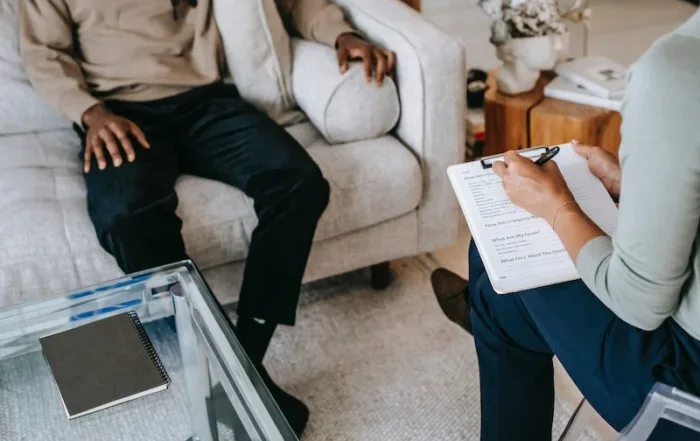
Confidence is one of the most important traits that helps people thrive in social situations. Whether you are attending a networking event, meeting new friends, speaking in front of a group, or simply engaging in everyday conversations, confidence allows you to express yourself freely without fear of judgment. Unfortunately, many people struggle with social anxiety, shyness, or self-doubt, which makes these moments uncomfortable and even overwhelming.
The good news is that confidence can be built. Just like learning a new skill, social confidence grows when you practice and adopt the right mindset. In this article, we will explore how to build confidence in social situations, why it matters, and practical strategies you can apply immediately to feel more comfortable in any interaction.
Why Confidence in Social Situations Matters
Confidence is more than just standing tall or smiling during conversations. It is the internal belief that you are worthy, capable, and valuable. In social settings, confidence affects:
- First impressions: People are naturally drawn to those who appear self-assured.
- Communication: Confidence allows you to speak clearly and express your ideas effectively.
- Opportunities: Being comfortable socially opens doors to friendships, careers, and networking possibilities.
- Mental well-being: When you feel secure in social situations, you experience less stress and anxiety.
Without confidence, you may miss out on opportunities, struggle to connect with others, and feel isolated. That’s why learning to build confidence is a life-changing skill.
Understanding the Root of Social Insecurity
Before improving confidence, it’s helpful to understand what causes insecurity in social situations. Some common reasons include:
- Fear of judgment – Worrying about what others think.
- Low self-esteem – Believing you’re not good enough.
- Past negative experiences – Embarrassment or rejection from the past.
- Lack of practice – Simply not being used to socializing.
- Overthinking – Focusing too much on how you appear instead of enjoying the moment.
Recognizing these roots helps you see that your social anxiety isn’t a personal flaw—it’s a mindset that can be shifted.
Practical Strategies to Build Confidence in Social Situations
1. Work on Your Body Language
Non-verbal communication often speaks louder than words. Standing with good posture, making eye contact, and smiling can make you appear more confident even if you feel nervous. When you practice confident body language, you also start to feel more secure internally.
Tips for confident body language:
- Keep your shoulders back and relaxed.
- Maintain natural eye contact without staring.
- Nod and smile to show engagement.
- Avoid crossing arms, which can appear defensive.
2. Prepare in Advance
Walking into a social situation blindly can make anyone nervous. Preparation gives you a sense of control. If you’re attending a networking event, research the people or topics likely to come up. If you’re meeting friends, think about stories or questions you can bring up.
Preparation does not mean rehearsing every word—it simply means equipping yourself with conversation starters or an open mindset.
3. Shift the Focus Away From Yourself
Most people worry about how they appear, but in reality, others are too busy thinking about themselves. Instead of focusing on your own insecurities, shift your attention to the other person. Ask questions, listen actively, and show curiosity.
This not only makes you feel less pressured but also makes others enjoy talking to you more.
4. Challenge Negative Self-Talk
Our inner critic often makes social situations harder. If you tell yourself, “I’m awkward” or “I’ll embarrass myself,” your mind will look for proof to support those beliefs. Start challenging these thoughts with positive affirmations.
Instead of “I’m bad at conversations,” try, “I’m learning to connect better each day.” Changing the inner dialogue takes practice, but it directly boosts confidence.
5. Start Small and Gradually Expand
Confidence doesn’t grow overnight. Start with low-pressure situations before tackling bigger ones. For example, strike up small conversations with a cashier, compliment a coworker, or greet neighbors. As you gain comfort, move on to more challenging settings like group events or public speaking.
Building confidence is like building muscle—it strengthens with consistent practice.
6. Embrace Discomfort Instead of Avoiding It
Growth happens outside your comfort zone. If you always avoid social interactions because of fear, you’ll never improve. Instead, accept that discomfort is part of the process. Even if you feel nervous, push yourself to participate. Over time, the discomfort fades, and confidence becomes natural.
7. Develop Social Skills Through Practice
Social skills—like storytelling, humor, and active listening—can be learned just like any other skill. Read books on communication, watch confident speakers, and practice regularly. The more you expose yourself to social interactions, the better you’ll become.
8. Focus on Progress, Not Perfection
Nobody is perfect in social situations. Even confident people stumble on their words, forget names, or feel nervous sometimes. The key is not aiming for perfection but recognizing your progress. Celebrate small wins—like starting a conversation or staying present without overthinking.
A Simple Confidence-Building Exercise
Here’s a practical exercise you can try daily:
| Step | Action | Purpose |
|---|---|---|
| 1 | Write down one negative thought you have before a social situation | Awareness |
| 2 | Replace it with a positive or neutral thought | Reframing |
| 3 | Practice confident body language in front of a mirror | Physical reinforcement |
| 4 | Engage in one small social interaction daily | Exposure |
| 5 | Reflect on how it went and note improvements | Growth tracking |
Repeating this exercise over weeks will rewire your mindset and habits, making confidence feel natural.
The Long-Term Benefits of Social Confidence
When you work on building confidence in social situations, you’ll notice improvements not just socially but in all areas of life. Benefits include:
- Stronger personal and professional relationships
- Increased opportunities for career growth
- Lower stress and anxiety levels
- Greater happiness and fulfillment
- A stronger sense of self-worth
Social confidence becomes a foundation that helps you thrive in any environment.
Conclusion
Building confidence in social situations is not about pretending to be someone you’re not—it’s about believing in your worth, practicing the right habits, and embracing discomfort as a step toward growth. By improving your body language, shifting focus to others, preparing in advance, and challenging negative thoughts, you can gradually develop the confidence to feel at ease in any interaction.
Remember: confidence is built step by step, not overnight. With consistent effort, you’ll transform social anxiety into self-assurance, opening doors to new opportunities and deeper connections.
FAQs About Building Confidence in Social Situations
1. How long does it take to build social confidence?
It varies for each person. With consistent practice, many people notice improvements within a few weeks to months. Confidence grows gradually, so patience is key.
2. Can introverts become socially confident?
Yes! Introverts may not seek constant social interaction, but they can still build strong confidence in conversations by focusing on quality connections and practicing social skills.
3. What should I do if I panic during a social interaction?
Take a deep breath, pause, and redirect the focus by asking the other person a question. Remember, it’s okay to feel nervous—most people won’t even notice.
4. Is faking confidence helpful?
Yes, to an extent. Acting confident through body language and tone can trick your brain into feeling more secure. Over time, this “fake it till you make it” approach becomes genuine confidence.
5. How can I practice social confidence if I don’t have many opportunities to socialize?
You can start small by practicing with people you encounter daily, like store clerks, coworkers, or neighbors. Online communities, group classes, or volunteering are also great ways to practice.
Menopause marks the permanent end of menstrual periods and fertility, [...]
Mental healthcare services focus on improving emotional and psychological well-being. [...]
Geriatric healthcare focuses on promoting and managing the health of [...]
A retinal detachment diagnosis can be concerning. If this has [...]
Musculoskeletal chest pain refers to discomfort originating in the muscles, [...]
Prenatal care is the ongoing medical support provided during pregnancy [...]
An oral surgeon, or a maxillofacial surgeon, is a dental [...]
Menopause is a natural biological process that marks the end [...]






